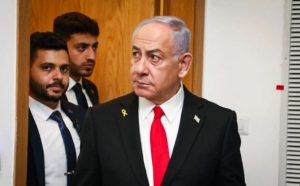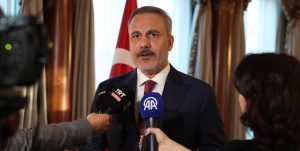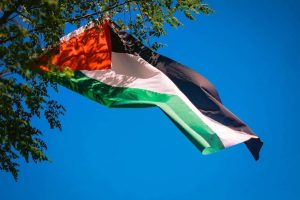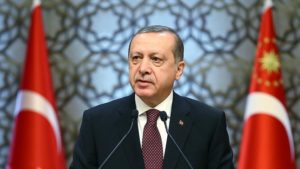By Teuku Farhan, IT Practitioner
Turkey’s move to block Instagram after the platform removed the Turkish Communications Minister’s post condoling the death of Hamas leader Ismail Haniyeh was a bold move and triggered various reactions at home and abroad. The move reflects the ongoing tension between freedom of expression and government policies towards social media platforms.
Instagram users in Turkey were again unable to access the social media network on Saturday, after the government blocked and accused Instagram of censorship. On Friday, communications agency BTK announced on its website that Meta’s platform had been frozen, without giving any reason.
But Transport and Infrastructure Minister Abdulkadir Uraloglu said the same day that Instagram had ignored government demands to remove certain posts. “Our country has values and sensibilities. Despite our warnings, they don’t take care of criminal content,” Uraloglu said. “We block access. If they abide by our laws, we will lift the ban.”
Also Read: Be Careful of the Trap of Deploying Peacekeeping Forces to Gaza
Ismail Haniyeh, Leader of the Palestinian Freedom Fighters
Firstly, we need to look at the reasons behind Turkey’s decision to block Instagram. Turkey, under the leadership of President Recep Tayyip Erdogan, has been known to take decisive action against social media deemed not in line with national interests. In this case, Instagram’s removal of the post was considered an unacceptable form of censorship by the Turkish government. Condolences for Ismail Haniyeh, who is considered by some Muslim and non-Muslim countries to be the leader of the Palestinian freedom fighters, have a diplomatic and emotional dimension for the Turkish government and its supporters.
Ismail Haniyeh was an important figure in Hamas, an organisation based in Gaza that is considered a terrorist organisation by the United States, the European Union and several other countries. However, Turkey has a more complex relationship with Hamas, often supporting the group in the context of Israel’s occupation of Palestinian land. Turkey and several other countries have also labelled Israel as a terrorist entity more dangerous than the Nazis that its ally America protects. The Turkish Minister of Communications’ condolences may be considered part of Turkey’s broader foreign policy of supporting the Palestinian struggle for independence.
Policy by the standards of the Zionist community?
Also Read: The Forty-Four-Days of Glory: Azerbaijan’s Struggle for Justice and Peace
Instagram’s decision to remove the post was likely based on the platform’s policy against content relating to terrorist organisations. Social media platforms like Instagram have strict guidelines on what can and cannot be posted, especially with regards to groups deemed terrorist by the international community. In this case, Instagram may argue that the post violates their policy and therefore should be removed. The policy mentions the types of organisations that the US has determined to be terrorist organisations. This proves Instagram is not faithfully representing the user community but the international investor and Zionist community. Freedom of expression is a lie because it only corresponds to its alignment with the Zionists. Siding with the Zionists is siding with evil. The slaughter of tens of thousands of Gazans.
However, Turkey’s move to block Instagram also has some important implications. Firstly, it raises questions about freedom of expression and censorship in the digital age.
On the one hand, the Turkish government may argue that it is protecting the national interest and expression rights of its citizens. On the other hand, the blocking of major social media platforms could be seen as Turkey’s protection of digital sovereignty limiting access to information for millions of users. According to Turkish media, 50 million of the country’s 85 million residents have Instagram accounts.
In addition, these actions also affect the relationship between the Turkish government and global technology companies. Companies such as Facebook, which owns Instagram, have to deal with a variety of different national regulations, often in opposition to the freedom of expression principles they uphold. Blocking the platform could force these companies to reconsider their operations in countries with strict policies, which in turn could affect their business and profits.
Also Read: Palestine Solidarity Month: A Collective Movement for Al-Aqsa and Palestine’s Freedom
From an international perspective, Turkey’s move can be seen as an attempt to strengthen its digital sovereignty. Many countries around the world now face similar challenges in managing digital content that is deemed harmful or incompatible with local values. Blocking platforms may not be the ideal solution, but it does emphasise that governments have authority and can take on the role of controlling narratives circulating on social media platforms that support genocidal crimes such as those of the Meta group (Instagram, Facebook).
The Instagram platform also undermines the voices of human rights and press freedom groups who see actions like this as a threat to freedom of expression. They argue that censorship and blocking of content only adds to the repression of dissenting voices and reduces the space for healthy public discussion. In the long run, this can be detrimental to democracy and individual freedom.
Social media wars in the context of defending Palestine are not new. Over the years, various social media platforms have become battlegrounds for different parties fighting for their respective narratives. For Palestinian supporters, social media is a powerful tool to disseminate information, rally support, and show the reality of genocide by criminal Zionist Israelis that is often ignored by the mainstream media. Posts about the genocidal situation in Gaza, the expulsions in Sheikh Jarrah, and the attack on Al-Aqsa Mosque have gone viral, galvanising international solidarity.
However, social media has also become a tool for states and groups with different interests. Content removal, labelling news as “misinformation,” and algorithms that limit the reach of certain posts are often perceived as forms of censorship that curb freedom of expression. In this context, Turkey’s move to block Instagram can be seen as part of a larger social media war, where governments seek to protect their digital sovereignty, the narratives they support and oppose what they perceive as unjust censorship.
Also Read: Hassan al-Turabi: A Controversial Thinker from Sudan
Turkey, as a country strategically positioned between East and West, is often at the crossroads of complicated international policies. The decision to block Instagram for deleting posts condoling Ismail Haniyeh reflects this dynamic. It shows how local issues can have a global impact, especially in today’s digital age where geographical boundaries are becoming increasingly blurred.
Turkey’s move to block Instagram is a reflection of the broader tensions between freedom of expression, government policy and regulation of social media platforms. It highlights the challenges countries face in managing complex and often controversial digital content. On the one hand, it can be seen as an attempt to protect national interests and local freedom of expression. On the other hand, it also raises concerns about censorship, press freedom and its impact on democracy. This move is not only relevant for Turkey, but also for many countries facing similar challenges in this digital age. Turkey’s move should be emulated by other countries that feel they have digital sovereignty or else remain a “colonised” country. (T/RE1/P2)
Mi’raj News Agency (MINA)
Also Read: Who Exactly is the RSF Group Shaking Sudan?




























 Mina Indonesia
Mina Indonesia Mina Arabic
Mina Arabic